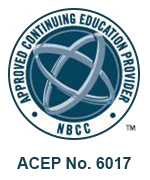One-day live online course designed to provide a basic introduction to couple therapy from an object relations perspective.
The Psychoanalytic Couple Therapy Program is offering a one-day live online course designed to provide a basic introduction to couple therapy from an object relations perspective.
September 6, 2025 – REGISTER
This course is appropriate for all levels of therapists interested in exploring and expanding their practice to include couple work or deepening their existing work with couples. It is a recommended but not required prerequisite to the Foundations of Psychoanalytic Psychotherapy distance learning series which builds upon these fundamentals which are not explicitly taught in the video seminar.
*This is a required course for students enrolling in the Psychoanalytic Couple Psychotherapy Certificate Program.
The course will be held online as a two-way secure, HIPAA-compliant live videoconference using the Zoom videoconference platform, requiring only a computer, laptop, tablet or smart phone with a camera/microphone and internet access.
Program Chair
Carla Trusty-Smith, PhD
Program Date(s):
September 6, 2025Course Schedule
The course will meet online as a live two-way videoconference from 9:00 a.m. – 5:10 p.m. US Eastern Time Zone with a one-hour lunch break from 1:15 – 2:15 p.m. ET, providing 6 hours of CE Credit. Participants will receive an advance reading list and copies of the course readings.
9:00 – 10:15 a.m.
What makes Couple therapy different from individual therapy?
Carla Trusty-Smith, PhD
- The back of the therapist’s mind
- Couple state of mind
- Creative couple
- The third position
- Desired outcomes
10:30-11:45 a.m.
Conducting an Assessment and Setting Up Treatment
Janine Wanlass, PhD
- Setting a frame
- Establishing an alliance
- Conducting an initial assessment
- Formulating hypotheses and making treatment recommendations
12:00-1:15 p.m.
Role of the therapist in transference/countertransference dynamics
Jim Poulton PhD
- Use of the therapist’s self
- Negative capability
- Transference and countertransference
- Contextual, Focused, Individual, Joint
- Working between individual and joint transferences
- Interpretation of defense and anxiety: The because clause
- Working through
2:15-3:30 p.m.
Couple Dynamics and Projective Identification
Jill Scharff, MD
- Couple dynamics from an object relations perspective
- Klein — projective identification
- Fairbairn — individual development
- Dicks — Marital tensions
3:45-5:00 p.m.
Common Challenges: Sexuality and Sexual Issues in Couple Therapy
David Scharff. M.D.
- Sexual Development
- Assessing Sexual Difficulty
- Dealing with Affairs
5:00-5:10pm
Closing
Carla Trusty-Smith, PhD
Program Faculty
James Poulton, Ph.D.
David Scharff, M.D.
Jill Scharff, M.D.
Carla Trusty-Smith, Ph.D.
Janine Wanlass, Ph.D.
Educational Objectives
Participants will be able to:
Session 1
- Define the concept of “couple state of mind”.
- Identify two aspects that differentiate couple therapy from individual therapy.
- Name three outcomes of successful couple therapy according to J. Scharff.
Session 2
- Describe 3 tasks of an assessment in couple therapy from a psychodynamic perspective.
- Discuss 2 ways to facilitate the establishment of a therapeutic alliance in couple treatment.
Session 3
- Describe two kinds of joint transferences couples can present in couple therapy.
- List three reasons a therapist may shift between offering interpretations of individual vs. joint transferences in couple sessions.
Session 4
- List three phases of projective identification according to Ogden.
- Identify one defensive and one restorative function of projective identification in marriage.
Session 5
- Enumerate five stages of sexual development that can create adult sexual vulnerability.
- List three differential causes of affairs and develop effective treatment techniques appropriate to each one
Continuing Education Credit Hours
The one-day course provides 6 hours CE Credit
Registration
Click to REGISTER
Tuition and Fees
General Registration fee: $210
Discounted fee for IPI Association Members and Full Members: $198
Limited scholarship funds are available for this training: https://theipi.org/scholarships/
Membership Benefits
Become a member of IPI to receive discounted registration fees for most of IPI’s events, a subscription to PEP Web, the online psychoanalytic library, and other benefits depending on membership level.
All IPI Members have the option to add on a Zoom account through the IPI for an additional $150 per year.
IPI has a HIPAA Business Associate Agreement with Zoom, which provides a HIPAA compliant platform for our accounts. HIPPA compliance is strongly recommended for all internet-mediated clinical work and clinical teaching.
Continuing Education Information
The International Psychotherapy Institute, IPI, is approved by The American Psychological Association to sponsor continuing education for psychologists. IPI maintains responsibility for the program and its content. The International Psychotherapy Institute has been approved by NBCC as an Approved Continuing Education Provider, ACEP No. 6017. Programs that do not qualify for NBCC credit are clearly identified. The International Psychotherapy Institute is responsible for all aspects of the programs. The International Psychotherapy Institute is authorized by the Board of Social Work Examiners in Maryland to sponsor social work continuing education learning activities and maintains full responsibility for this program. This training qualifies for Category I continuing education units. The International Psychotherapy Institute is recognized by the New York State Education Department’s State Board for Social Work as an approved provider of continuing education for licensed social workers #SW-0299.
Participants are responsible for verifying that IPI CE credit is accepted by the licensing boards in their own states.



